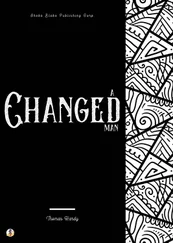Sheba Blake - Anarchism
Здесь есть возможность читать онлайн «Sheba Blake - Anarchism» — ознакомительный отрывок электронной книги совершенно бесплатно, а после прочтения отрывка купить полную версию. В некоторых случаях можно слушать аудио, скачать через торрент в формате fb2 и присутствует краткое содержание. Жанр: unrecognised, на английском языке. Описание произведения, (предисловие) а так же отзывы посетителей доступны на портале библиотеки ЛибКат.
- Название:Anarchism
- Автор:
- Жанр:
- Год:неизвестен
- ISBN:нет данных
- Рейтинг книги:4 / 5. Голосов: 1
-
Избранное:Добавить в избранное
- Отзывы:
-
Ваша оценка:
- 80
- 1
- 2
- 3
- 4
- 5
Anarchism: краткое содержание, описание и аннотация
Предлагаем к чтению аннотацию, описание, краткое содержание или предисловие (зависит от того, что написал сам автор книги «Anarchism»). Если вы не нашли необходимую информацию о книге — напишите в комментариях, мы постараемся отыскать её.
Anarchism — читать онлайн ознакомительный отрывок
Ниже представлен текст книги, разбитый по страницам. Система сохранения места последней прочитанной страницы, позволяет с удобством читать онлайн бесплатно книгу «Anarchism», без необходимости каждый раз заново искать на чём Вы остановились. Поставьте закладку, и сможете в любой момент перейти на страницу, на которой закончили чтение.
Интервал:
Закладка:
E. V. Zenker
Anarchism
First published by Sheba Blake Publishing Corp. 2021
Copyright © 2021 by E. V. Zenker
All rights reserved. No part of this publication may be reproduced, stored or transmitted in any form or by any means, electronic, mechanical, photocopying, recording, scanning, or otherwise without written permission from the publisher. It is illegal to copy this book, post it to a website, or distribute it by any other means without permission.
E. V. Zenker asserts the moral right to be identified as the author of this work.
Sheba Blake Publishing Corp.
2288 Crossrail Dr
Atlanta, GA 30349
support@shebablake.com
First edition
Cover art by Sheba Blake
Editing by Sheba Blake
This book was professionally typeset on Reedsy
Find out more at reedsy.com

Preface
On the day of the bomb outrage in the French Parliament I gave an impromptu discourse upon Anarchism to an intelligent audience anxious to know more about it, touching upon its intellectual ancestry, its doctrines, propaganda, the lines of demarcation that separate it from Socialism and Radicalism, and so forth. The impression which my explanations of it made upon my audience was at the same time flattering and yet painful to me. I felt almost ashamed that I had told these men, who represented the pick of the middle-class political electorate, something entirely new to them in speaking of matters which, considering their reality and the importance of the question, ought to be familiar to every citizen. Having thus had my attention drawn to this lacuna in the public mind, I was induced to make a survey of the most diverse circles of the political and Socialist world, both of readers and writers, and the result was the resolve to extend my previous studies of Anarchism (which had not extended much beyond the earliest theorists), and to develop my lecture into a book. This book I now present to my readers.
The accomplishment of my resolve has been far from easy. What little literature exists upon the subject of Anarchism is almost exclusively hostile to it, which is a great drawback for one who is seeking not the objects of a partisan, but simply and solely the truth. One had constantly to gaze, so to speak, through a forest of prejudices and errors in order to discover the truth like a little spot of blue sky above. In this respect I found it mattered little whether I applied to the press, or to the so-called scientific Socialists, or to fluent pamphleteers.
“In vielen Worten wenig Klarheit, Ein Fünkchen Witz und keine Wahrheit.”[1]
[1] Many words, but little light; a spark of wit, but no truth.
Laveleye, for instance, does not even know of Proudhon; for him Bakunin is the only representative of Anarchism and the most characteristic; Socialism, Nihilism, and Anarchism mingle together in wild confusion in the mind of this social historian. Garin, who wrote a big book, entitled The Anarchists , is not acquainted with a single Anarchist author, except some youthful writings of Proudhon’s and a few agitationist placards and manifestoes of the modern period. The result of this ignorance is that he identifies Anarchism completely with Collectivism, and carries his ridiculous ignorance so far as to connect the former Austrian minister Schäffle, who was then the chief adviser of Count Hohenwart, in some way or other with the Anarchists. Professor Enrico Ferri, again, exposes his complete ignorance of the question at issue sufficiently by branding Herbert Spencer as an Anarchist. In fact, the only work that can be called scientifically useful is the short article on “Anarchism” in the Cyclopædia of Political Science , from the pen of Professor George Adler. All pamphlets, articles, and essays which have since appeared on the same subject are, conveniently but uncritically, founded upon this short but excellent essay of Adler’s. Since the extraordinary danger of Anarchist doctrines is firmly fixed as a dogma in the minds of the vast majority of mankind, it is apparently quite unnecessary to obtain any information about its real character in order to pronounce a decided, and often a decisive, judgment upon it. And so almost all who have hitherto written upon or against Anarchism, with a few very rare exceptions, have probably never read an Anarchist publication, even cursorily, but have contented themselves with certain traditional catchwords.
As a contrast to this, it was necessary, for the purposes of a critical work upon Anarchism, to go right back to its sources and to the writings of those who represented it. But here I found a further difficulty, which could not always be overcome. Where was I to get these writings? Our great public libraries, whose pride it is to possess the most complete collections possible of all the texts of Herodotus or Sophocles, have of course thought it beneath their dignity to place on their shelves the works of Anarchist doctrinaires, or even to collect the pamphlet literature for or against Anarchism—productions which certainly cannot take a very high rank from the point of view either of literature or of fact. The consequence of this foresight on the part of our librarians is that, to-day, anyone who inquires into the development of the social question in these great libraries devoted to science and public study has nothing to find, and therefore nothing to seek. I have thus been compelled to procure the materials I wanted partly through the kindness of friends and acquaintances, and partly by purchase of books—often at considerable expense,—but always by roundabout means and with great difficulty. And here I should like specially to emphasise the fact that it was the literary representatives of Anarchism themselves who, although I never concealed my hostility to Anarchism, placed their writings at my disposal in the kindest and most liberal manner; and for this I hereby beg to offer them my heartiest thanks, and most of all Professor Elisée Reclus, of Brussels.
But if I thus enter into details of the difficulties which met me in writing the present book, it is not with the object of surrounding myself with the halo of a pioneer. I only wish to lay my hand on a sore which has no doubt troubled other authors also; and, at the same time, to explain to my critics the reason why there are still so many lacunæ in this work. I have, for instance, been quite unable to procure any book or essay by Tucker, or a copy of his journal Liberty , although several booksellers did their best to help me, and although I applied personally to Mr. Tucker at Boston. It was all in vain. Ut aliquid fecisse videatur , I ordered from Chicago M. J. Schaack’s book, Anarchy and Anarchists, a History of the Red Terror and the Social Revolution in America and Europe: Communism, Socialism, and Nihilism, in Doctrine and in Deed . After waiting four months, and repeatedly urging things on, I at last received it, and soon perceived that I had merely bought a pretty picture book for my library for my five dollars. The book contains, in spite of its grandiloquent title, its six hundred and ninety-eight large octavo pages, and its “numerous illustrations from authentic photographs and from original drawings,” not a single word about the doctrine of Anarchism in general, or American Anarchism in particular. The author, a police official, takes up a standpoint which is certainly quite explicable in one of his position, but which is hardly suitable for a social historian. To him “all Socialists are Anarchists as a first step, although all Anarchists are not precisely Socialists” (see page 22),—which is certainly praiseworthy moderation in a police officer. He calls Ferdinand Lassalle “the father of German Anarchism as it exists to-day” (page 23); on the other hand he has no knowledge of Tucker (of Boston), the most prominent exponent of theoretical Anarchism in America. This, then, was the literature which was at my disposal.
Читать дальшеИнтервал:
Закладка:
Похожие книги на «Anarchism»
Представляем Вашему вниманию похожие книги на «Anarchism» списком для выбора. Мы отобрали схожую по названию и смыслу литературу в надежде предоставить читателям больше вариантов отыскать новые, интересные, ещё непрочитанные произведения.
Обсуждение, отзывы о книге «Anarchism» и просто собственные мнения читателей. Оставьте ваши комментарии, напишите, что Вы думаете о произведении, его смысле или главных героях. Укажите что конкретно понравилось, а что нет, и почему Вы так считаете.












